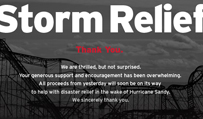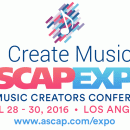To call Lupe Fiasco’s upcoming Lasers a “highly anticipated” album would do an injustice to the recent controversy surrounding to its March 8 debut. To catch you up: when Atlantic Records, to throw off potential leakers, originally declined to announce an official release date, fans went ballistic. They’d been clamoring for a new album since 2007’s Lupe Fiasco’s The Cool, and their anticipation had been ratcheted even higher by news that Lasers would feature contributions from the likes of the Neptunes, John Legend, Trey Songz, Kane Beatz, old friend Soundtrakk, and new friend, the U.K. rapper Sway. Further fueling the fans’ displeasure with Atlantic was the artist himself, who voiced his frustration publicly. When the label acquiesced and announced a launch date for the new record, more than 200 members of the Fiasco faithful descended upon the company’s New York HQ to hear their man deliver a victory speech. Clearly, however, this Chi-town rapper is still at odds with the current practices of the music industry, and he expounds on that timely topic and others in this exclusive Music Connection interview.
Music Connection: How does it feel to know that your fans will take to the streets for you?
Lupe Fiasco: Lupe Fiasco fans are incredible. I stopped calling Lasers a Lupe album; I call it the People’s Album, or the Fan’s Album. 30,000 signatures and a protest at their N.Y.C. headquarters, and Atlantic Records were forced to give a release date. It shows how powerful a force the fans can be, because just the threat of the protest alone was enough pressure for Atlantic to announce a date; but that didn’t stop the fans from coming anyway! I was blown away, and I thanked all for coming down and protesting peacefully and for exercising their freedom of speech. They organized, financed, promoted, and executed a protest––maybe the first protest ever for a hip-hop rapper.
MC: How do you think the fans will respond to the new music?
Fiasco: I think that they’ll love a lot of it and hate certain pieces of it, because, to be honest, part of this album’s focus is to take it to another level commercially. That can be a double-edged sword when it comes to the fans, because some of them say, “You’re underrated, you’re not getting the shine that you should get.” But the shine that they’re asking for can only be achieved through commercial success. They have to realize it’s where hip-hop is going; you may think you have street cred for being thuggish, but unfortunately it doesn’t make the needle move as far as sales.
MC: Critical success has never been a problem for you, has it?
Fiasco: I’m one of the most critically acclaimed artists of my time. Whether it’s from music critics or my fellow MCs like Jay-Z, Kanye, all the way down to Lil B, I’m respected. But then my fans say I’m underrated. I get, “Why aren’t you on MTV a lot, and how come you’re not on the radio a lot?” But in order for me to do well over there I have to be more commercial. There are specific tracks [on Lasers] that cater to all that, but then there’s other stuff where I’m not thinking about radio at all, it’s just a dope song with a dope with a dope concept with a really dope beat, and some dope lyrics, and that’s all it’s meant to be. They’re gonna’ love that stuff, but they’ll probably hate two or three of the other songs.
MC: Aside from the focus on being more commercial, is Lasers any kind of departure for you, musically, or content wise?
Fiasco: The content is still the same. As a matter of fact, it will probably be more controversial, more deep, more impactful than my previous albums, but it still sits in a commercial chair.
MC: What is controversial about the album?
Fiasco: Well, even on my last album I touched upon a lot of socio-political things––I do on all my records. I think in this day and age right now it’s not really acceptable to be brutally honest. We live in a world of censorship and sensitivity, and everybody is trying to respect everybody’s sensitivities, but I’m not about to respect the sensitivity of a tyrant, or the sensitivity of somebody trying to oppress you, or the sensitivity of a racist. I do that on this record, and I think people will find the truth more shocking than if I talked about hacking people up, or how many people I shot. That stuff doesn’t even move the needle anymore, because we’re so desensitized to violence, but if you want to shock somebody, just tell them the truth, like WikiLeaks.
I’m not talking about anything that’s not on Fox News or CNN, but once you remove the political correctness to the truth, it becomes shocking. What’s funny is that nobody from my profession is saying this stuff, they’re just bragging about the amount of people they slept with, or trying to get you to dance. Sure, Dead Prez (check), Immortal Techniques, and the Paris’s talk about it, but nobody at my commercial level; like the B.o.B’s, the Wale, the Kanye’s, nobody’s saying that but me.
MC: Doesn’t most of the controversy, or truth, come from you being vocal about issues with your record label and gripes about the music business?
Fiasco: The entire first verse of the [first single] “Show Goes On” is dedicated to Atlantic Records, you know what I’m saying? It’s about a process that was becoming very difficult. A very ugly, crazy situation with lawyers, managers, and all kinds of chicanery being done by certain people, and it get’s kinda nasty. It’s less about me throwing people under the bus or naming names, and more about the process of going from a nobody to a somebody in a business where they’re trying to get you to be famous by any means necessary. They don’t care if it’s authentic or not, or if it goes against the artist’s sensibilities, so I’m critiquing the whole process of the fame game.
MC: During the recording process, did anyone warn you not to bite the hand that feeds you?
Fiasco: Well, no, because they don’t feed me. That’s a major misconception about the whole business. I don’t look at an advance as money; I look at it as debt, and debt is not money. I have to pay it all back, and then I have to make all my money on the road anyway, which has nothing to do with the label. I don’t get any checks from the label that I don’t have to pay back, so then the label is not giving me money, nor are they really feeding me, are they? That’s the way I look at it.
MC: Why not just avoid a major label entirely and put the music out yourself, or do you need access to their machine in order to achieve the commercial success you’re after?
Fiasco: At a certain point you start to learn that just because you have access it doesn’t necessarily translate to money in your pocket. Once you get four or five years into that and you understand how fame doesn’t equal money, then your outlook will start to change.
Once you get a good education on what this business is all about, then the rules can change, because you don’t really need a record label to have a hit record. In fact, sometimes being on a major label means that you don’t get to record the song that you would normally do outside of the record company; the song that may become a hit record. The label may feel that it’s not the direction you should go in, so they put you in another direction and then you’ll go and make a bunch of garbage with no hits.
MC: Is it tough to keep your identity in that environment?
Fiasco: The record companies are all about comparisons: they’ll compare you to Lady Gaga or Drake or Beyonce or Fall Out Boy. It’s, “You need to make records like this person!” It’s nothing original even, it’s more like “let’s take a hit that people forgot about, speed it up, put some new vocals down and try to make it a hit again.”
MC: Have you stressed to them that you can make a hit album that’s all original too?
Fiasco: We’ve had that conversation. Where it’s like, “What do you want from me, exactly? You want number one fashions, you want this and you want that?” I was like, “I understand that, so let’s go make it from scratch. Let’s not take this dude’s record, slide another dude on it, and then push this other dude off of it, but then add some other dude back on it. Nah, let’s at least try to make it sound original, not like it’s out of some box.”
MC: Collaborations seem to be almost mandatory in hip-hop. How do you involve other personalities, but still maintain your identity on your own song/album?
Fiasco: I don’t have collaborations on my album, other than some people singing some hooks. There’s only one other rapper on the album, and that’s my man Sway from the U.K. The hooks are big, but never bigger than me, you know what I’m saying? Sometimes people have really big hooks, but no real identity, so once the hooks go away, they go away.
MC: There’s a lot of pressure on artists to come up with a blockbuster hit. How have you dealt with that?
Fiasco: You have to be really careful, because some songs are bigger than the artists, and that means if you’re going to be a hit-driven artist, you’re going to have problems. I don’t care what anyone says, once you get to a land where you’re only a hit-driven artist––and the “you” isn’t coming through––then you’re finished. I’m not talking about becoming a media darling, or anything like that, what I mean is that if people associate you with a hook and not you, then it’s tough to come back from that. Especially if the hit doesn’t really match who you are as an artist, because then you’ll go and do your own type of art and it won’t match with that big hit you did before. It’s gotta be about how you feel about your music, not about “I got 20 million or 50 million dollars!” Everybody could get money, but how do you feel about your music and your art? [Ignoring] that is what could really hurt a man.
MC: You’ve also been vocal against 360 deals between artists and labels; can you recap your beef for our readers?
Fiasco: I think the 360 deal is mythical. Traditionally the record label is concerned with distribution and marketing of your music, right? They manufacture, release, distribute and market your album with their money coming from the royalties and sales of your music. You as an artist, then, are free to make money, receive money from your publishing, from your shows and your merchandise. The label has nothing to do with you performing every night, and the guy who markets the record doesn’t play the drums for you, so they shouldn’t get a percentage of what you get for performing. But the way the label sees it is that since they put out the music that made you famous, or since they put your video on MTV, that they deserve a percentage of everything that comes along with that. A show, a sneaker, and a bottle of water, even a letter you wrote to your mom––in a 360 deal they want a piece of every dollar that is raised around you. I think that is ridiculous bullshit.
MC: You don’t feel the label brings enough to the table?
Fiasco: They will try to sweeten the deal by saying that they’re going to be active for you, or get you that Coca-Cola deal, or press up some t-shirts, so in a way they’re acting as managers. But I don’t trust it because I don’t really think they know how to do it. I say to them, “You’re telling me that it’s being done this way as a reaction to the way music is selling nowadays, but you’re the one selling the music! So if you can’t sell music anymore, why the fuck do you think I would believe that you could sell a tour?”
MC: Do you think the 360 deal is here to stay?
Fiasco: It seems like every record company now is a 360 record company. In the past, you’d walk into their offices and see records or Billboard charts hanging up on the walls, but now you see hoodies. It’s like, “Look at the headphones we just made!” That’s how they entice an artist to sign, and it makes sense for the label from a capitalistic/business side.
MC: Can you tell us about your current deal, then?
Fiasco: I still have a traditional record deal, I would never do a 360 deal, not unless they came in and gave me 30 million dollars. Some people can’t book shows and make their own merch, but some people can. Hey, every business isn’t built for everyone, just like I wouldn’t go to most of the stores in a mall, yet there are 160 stores in that bitch! [laughs] I don’t need no carpets, no prom dress, or no teacups, you know what I’m saying? I just come in for some sneakers, some candy, some video games and I’m out.
MC: It seems that entrepreneurship and branding is almost as important in the world of hip-hop as the music is. Why do you think that is?
Fiasco: Hip-hop, more than any other genre of music today, is full of entrepreneurs. It came from making something out of nothing, and taking advantage of every opportunity that hip-hop gives us. It just so happens that hip-hop is one of the only genres of music today that also has a lifestyle and a fashion: jazz has a culture, but it’s not a full-blown lifestyle. … I can add a whole bunch of different elements of my personality to commercial products, and that’s exciting.
MC: This interview will appear in our annual Managers issue, so what would you tell our readers to look out for?
Fiasco: I have a manager, but I also self manage. It’s important to me that my manager’s only job is specifically designed to only manage Lupe Fiasco; what I mean is that he’s a homey who knows what I’m capable of and what I stand for, and he helps me implement it. There are managers that only care about money, so they’ll put their artist in any situation, not caring about whether it’s really good or not for [the artist]. Some managers don’t do anything at all, so their management consists of taking advantage of what you’re bringing in as an artist, and then they’ll take their 20 percent from that.
Sometimes I’m quick to say, nah, I don’t wanna do this, but that trusted second opinion is non-biased, and can help you make the best decision. … A manager may help you get rich really quick, but you also may end up a laughing stock. A good manager will help you understand your potential, because even if you want to be non-commercial, if they present you to the right audience and in the right way, it can be just as lucrative as if you went the mainstream/pop route that you would consider selling-out.
Contact [email protected]














